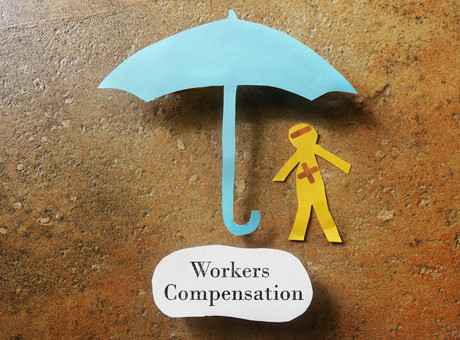
It has been said to me workers compensation is a great way for employees to manage their employers, and this is probably the case. Mind you, most employees do not start out on this track but poor workplace relations and sloppy procedures by default ultimately open the gate. Conversely, employers who see their workers as the most important resource and proceed accordingly reap the rewards, and as the research consistently reflects, this can be many times over.
Here is my list of 10 costly mistakes that can increase your workers comp premium:
- Not investing in prevention — Prevention is cheaper than cure and besides persons conducting a business or undertaking (PCBUs) have very clear legislative responsibilities to ensure the health safety and welfare of their workers (and others). PCBUs must adopt a risk management approach and not doing so is the number one reason for increased workers compensation costs. Basically, the more workers compensation claims with time lost will generally mean higher premiums.
- Not having a return to work (RTW) program — The longer someone is off work, the more wages are paid and the more impact it has on the workers compensation premium. It is also well established that the longer someone is off work, the less likely they are to return. Workplaces need to adopt a ‘stay-at-work’ culture, write that into your company’s RTW program and make sure people know this is how you do business.
- Not allocating necessary resources — One of the most valuable resources in this space is a trained (the SIRA Approved RTW Co-ordinator course) and dedicated RTW coordinator who operationalises a stay-at-work culture. Expecting someone like the payroll person to take this on in between all the other responsibilities doesn’t cut it. Similarly, a WHS specialist or health and safety representative (HSR) or safety committee, or whatever the PCBU’s consultation process determines is best, can facilitate that all-important focus on prevention.
- Not training and supporting supervisors — Supervisors are key in any workplace and they are best placed to act on aches and pains that can become injuries. They are also the first to know when someone is off work. Finally, they set the scene for how the injured worker will be supported during the return-to-work process. This requires fortitude and time and support from the supervisor, such as taking the injured worker to the doctor. Taking this on needs to be an expectation and demands the measure and acknowledgement from the employer.
- Not requiring early reporting — This is a reflection of poor leadership, systems and procedures, and a hands-off culture and is not best practice. In 2015, the National Council on Compensation Insurance, Inc. (NCCI) in the US reported delay with injury reporting can increase compensation claim costs by up to 51%, as the condition worsens. While their research noted the role of attorneys, for example, in the escalating costs, it also reflects the likelihood of psychosocial factors that are the greatest predictor of long-term work loss.
- Not having a preferred medical advisor — Your workers will benefit from a skilled occupational health doctor. Typically, a general practitioner is just that, someone who deals with a range of general ailments and is under pressure to get through those spluttering and nauseous patients in the waiting room. Occupational health warrants someone who understands the workers compensation system, adopts a bio-psychosocial approach to injury management, invests the time in communication with the relevant stakeholders and is focused on an early safety and sustained return to work. Choose wisely. You are potentially saving your injured workers from a life of needless worklessness and depression, as well as saving your company from protracted and expensive claims.
- Not actively managing the claim — While the workers compensation agent/insurer has an important role in claims management, a hands-on approach by the employer is critical. It is, after all, the employer’s money on the line and you need to be vigilant.
- Not having a workers comp broker — Workers compensation is a unique form of insurance and requires specialist and actuarial skills not generally available in a workplace. Brokers should be doing the math and making sure injured workers are getting the attention they need to return to work. A broker on your team should mean your claims are being proactively managed; but you still need to stay involved.
- Not having a preferred workplace rehab provider — Most business would have identified an accountant and a solicitor should the need arise, as bad advice and service can be costly. So how is nominating a preferred workplace rehab provider that will be dealing with your most precious resource any different?
- Not ensuring injured worker upgrades — It is not enough for the person to get back to work, they need to get back to their pre-injury role wherever possible. Too often employers will let an injured worker languish on reduced hours and/or reduced duties or still having treatment long after it would be deemed reasonable or necessary. This lack of active management can create an expectation around injury management and return to work that is disastrous for the workplace culture.
I would encourage you to trust your instincts and if it does not feel right, it probably isn’t. However, blame and negativity should not be the approach and will only get injured workers offside. A well-managed RTW process that is pointed, positive and proactive will always reap the most rewards.
Supporting the wellbeing of Australia's firefighters
Academics Dr DAVID LAWRENCE and WAVNE RIKKERS detail their continuing research in the area of...
Software-based COVID-19 controls help protect onsite workers
The solution decreases COVID-19-related risks by ensuring that contractors and visitors are...
Spatial distancing rules: are they insufficient for health workers?
Researchers have revealed that the recommended 1- to 2-metre spatial distancing rule may not be...








